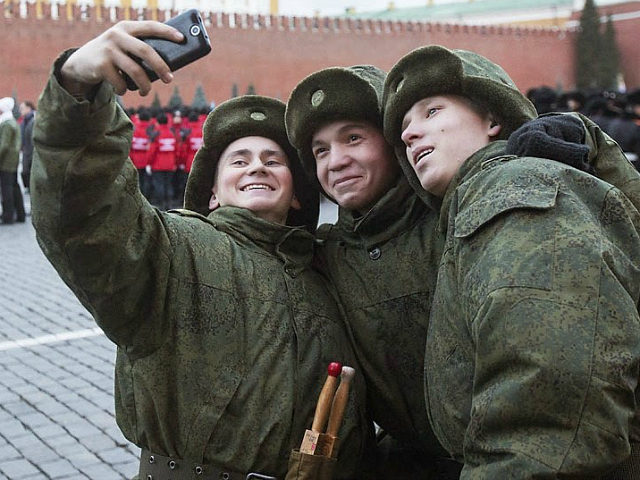New Russian military regulations are expected to ban soldiers from taking selfies and uploading them to social media, the Moscow Times reported.
The bill, drafted by the Russian defense ministry, contends that social media postings can compromise security and “destabilize the internal political and social situation in various regions of the world,” as automatic geolocation can reveal where a military unit is located. As the major concern behind the ban is the potential exposure of secret operations, it would only affect “contract” soldiers serving abroad, primarily in Ukraine and Syria, rather than those based in Russia.
BBC notes that online postings have accidentally revealed Russian military positions on numerous occasions in the past. Russia’s domestic intelligence agency, the Federal Security Service (FSB) and the Federal Protection Service (FSO), the Kremlin grounds, and other government buildings already have a ban on social media postings in place.
Unfiltered images and messages from Russian soldiers could also generate unwanted controversy, as in the case of a 2015 incident in which Russian soldiers caused anger after posting photos of themselves brandishing guns and smiling in front of pro-Assad and pro-Putin propaganda.
Russia actively supports Syrian dictator Bashar al-Assad over rebel groups in that country, a position that polls have found is increasingly unpopular among Russians. A recent poll conducted by the Levada Center last month found that nearly half the Russian public want current operations in Syria to end soon, while a majority of Russians also believe in Ukraine’s existence as an independent state, believing that Russia should not try to expand further into Ukrainian territory.
Internet freedom has long been a contentious issue in Russia, with Vladimir Putin previously signing laws designed to crack down on what the Kremlin designates as “extremist” content. In July, thousands took to the streets of Moscow to demand an end to all forms of internet censorship, accusing authorities of censoring content critical of the government.
Pending legislative approval, the ban is expected to be enforced January 2018.
Follow Ben Kew on Facebook, Twitter at @ben_kew, or email him at bkew@breitbart.com.

COMMENTS
Please let us know if you're having issues with commenting.